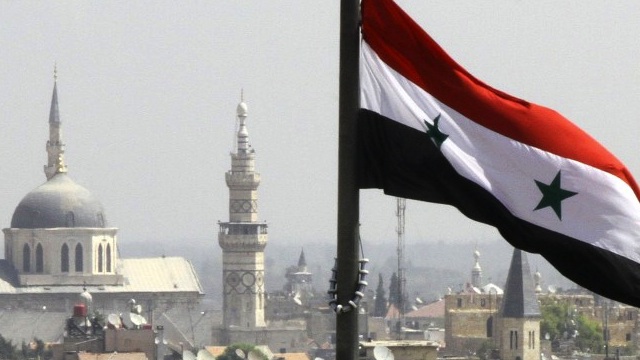SUMMARY
This is AI generated summarization, which may have errors. For context, always refer to the full article.

BAGHDAD, Iraq – At the peak of Iraq’s sectarian war, officials in Baghdad accused Syrian President Bashar al-Assad’s regime of allowing Islamist militants to cross the two countries’ border to sow chaos.
Now, Damascus may be feeling the consequences of “playing with fire” as the uprising against Assad’s rule enters its 23rd month and regime forces fight the Al-Nusra Front — a formidable group that has been linked to Al-Qaeda in Iraq.
At its peak, the flow of foreign fighters into Iraq was a key concern of the US military. Prime Minister Nuri al-Maliki said in the wake of deadly Baghdad bombings in August 2009 that “90 percent of terrorists” entered Iraq via Syria.
“They (Syria) contributed to forming a radical generation to fight the Americans in Iraq, but after the withdrawal, those fighters started thinking about working in Syria,” Iraq’s deputy interior minister Adnan al-Assadi told AFP, referring to the December 2011 pullout of US forces from Iraq.
Assadi’s remarks echo the complaints of Iraqi security officials who for several years argued that Assad’s regime was responsible for actively allowing militants into their country.
In a December 2009 interview, then acting National Security Adviser Safa Hussein, referring to fighters crossing the 600-kilometer (375-mile) frontier, told AFP that Syrian officials “are at the door — sometimes they open it fully, sometimes they leave it half-open.”
“They can make life very difficult for Al-Qaeda to come to Iraq … I am talking about Damascus airport — there are more Syrian intelligence agents at this airport than travelers, and they’re able to control it pretty well.”
A trove of documents discovered by American forces near the northern Iraqi town of Sinjar — long a hub for foreign militants entering via Syria — which were released in 2007, indicate that from August 2006 to August 2007, nearly 700 foreign fighters entered Iraq.
The fighters were using decades-old smuggling routes that became popular during an embargo imposed on Iraq in the 1990s, when many commodities had to be illicitly transported into the country.
After the 2003 US-led invasion, analysts and officials say Damascus looked the other way as those same routes became conduits for Al-Qaeda-linked fighters.
Now many are headed back into Syria to fight for jihadist groups, the best-known of which is the Al-Nusra Front.
“Like a corporation, it makes more sense to build on what you already have than reinvent the wheel,” Nada Bakos, a former CIA analyst who followed Al-Qaeda in Iraq, told AFP.
Al-Nusra notoriety
Al-Nusra Front first gained notoriety for its suicide bombings in Syria but has evolved into a formidable fighting force leading attacks on battlefronts throughout the country.
Its suspected affiliation to Al-Qaeda’s front group in Iraq led to it being labelled a “terrorist” organization by Washington in December.
At the time, the US State Department described it as a “new alias” for Al-Qaeda in Iraq, and said it was “an attempt by AQI to hijack the struggles of the Syrian people for its own malign purposes.”
According to the US, the head of Al-Qaeda in Iraq “is in control of both AQI and Al-Nusra” and reports on Internet forums used by jihadists indicate several hundred militants have made the trip from Iraq into Syria to fight Assad’s regime.
Despite the designation, however, the group has been spearheading the anti-Assad rebellion as the main rebel Free Syrian Army struggles to overcome divisions in its ranks.
“It’s definitely fair to say that this is blowback for the policy that they (Syria) pursued in Iraq,” said Will McCants, a former counter-terrorism adviser at the State Department and now an analyst at the Center for Naval Analyses.
“They were allowing jihadis to go across their border and fight for Al-Qaeda without giving a thought to, hey, when this war in Iraq dies down, where are these guys going to go next?” added McCants, who also writes for the popular Jihadica blog.
A Syrian official, speaking on condition of anonymity, admitted, “It was a mistake to let these guys pass through Syria to go to Iraq — now they are spitting on us, and fighting us.”
“You can never compromise with them,” he said.
One analyst pointed to American experiences of supporting Islamist fighters in Afghanistan against the Soviet Union in the 1980s, which many say planted the seeds for what would eventually become Al-Qaeda and the Taliban.
“When you empower fundamentally ideological fighters, they will come back potentially to bite you,” said Brian Fishman, a former research director at the Combating Terrorism Center.
“The Syrian government played with fire for a long time.” – Rappler.com
Add a comment
How does this make you feel?
There are no comments yet. Add your comment to start the conversation.